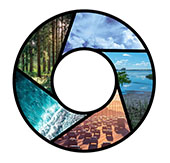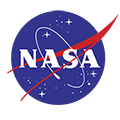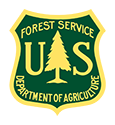NOAA's Climate Program Office: Notice Of Funding Opportunity
Also please find a list of projects recommended for funding from NOAA AC4's FY20 competition (not all projects have been awarded as of July 21, 2020).
List of All CURRENT NOAA CPO Competitions
Open to view competition details, information sheets, and contact information.
Competition 1: AC4 - Emissions, Air Quality, and Heat in Urban Areas
In FY21, the AC4 program will focus on a subset of AEROMMA by seeking to support studies of emissions and chemical transformation in the urban atmosphere. Specifically, AC4 plans to support the types of projects that:
- Determine organics emissions and chemistry, including of understudied VCPs to better understand the impact on ozone and aerosol formation, and to study their relative importance on urban air quality compared to other sources of VOCs such as from energy-related, cooking, and biogenic sources.
- Determine reactive nitrogen emissions and chemistry in urban corridor(s) (i.e., urban core to suburban and outlying rural areas) to understand the current importance of combustion and non-combustion sources, continue the trend analysis and determine changes in the reactive nitrogen cycle chemistry and its influence on ozone and aerosol formation. Determine the fraction of urban VOC and NOx emissions associated with emissions of CO2 and methane (CH4) from transportation, buildings, industry, and landfills to quantify co-benefits of managing for both air quality and carbon emissions in urban settings.
- Investigate urban meteorology, to better understand extreme heat on urban air quality, urban heat islands, and the role of long-range transport versus local sources of air pollution.
Competition 2: AC4 and COM: Atmospheric impacts due to changes in anthropogenic activity during the COVID-19 pandemic
In response to this unique opportunity to study the atmospheric composition effects of the ongoing pandemic in FY21, AC4 and COM programs invite proposals focused on, but not limited to, one or more of the following:
- Analysis of pandemic-related impacts within individual cities or regions in the United States or impacts of changes in particular anthropogenic activity
- Comparative studies across different regions or sectors of varying characteristics
- The use of previously collected and existing in situ measurements
- Collection of complementary in situ data to fully document atmospheric changes after the pandemic
- Application of JPSS and GOES satellite products, including identification of best suite of products for assessing and monitoring impacts on national and global scales
- Development of observational-based datasets (inclusive of satellites, in-situ) or emission inventories, through compilation or integration, that enable analysis of pandemic impacts
- Identification of atmospheric constituents, which can serve as markers of particular human and/or economic activity – agriculture, shipping, air traffic etc. – as affected by the pandemic disruptions and assessment of its return to previous levels
- Assessment of the overall magnitude of the event (as measured in changes in emissions and concentrations), and its place in a long term and/or national/global context
Competition 3: MAPP - New Climate Monitoring Approaches and Products for Areas of Climate Risk
In FY 2021, the MAPP Program is soliciting proposals to advance climate monitoring. This effort builds on NOAA’s leadership in providing climate monitoring products to the public. NOAA’s Fisheries, Ocean, Satellite, and Weather services as well as its Laboratories and Cooperative Institutes provide a wide range of critical climate information to the public, leveraging the agency’s extensive in-situ and remote data holdings, modeling capabilities, communication and dissemination expertise, and scientific leadership. This solicitation also builds on a long history of the Climate Program Office’s support for building capabilities undergirding climate monitoring and new climate monitoring products.
Competition 4: MAPP - Process-Oriented Diagnostics for Climate Model Improvement and Applications
In FY 2021, the MAPP Program is soliciting proposals to advance model diagnostic activities. Climate and Earth System Model (ESM) development is a key component of NOAA’s mission. NOAA’s models provide a vast resource of information to NOAA managers, decision makers, and scientists as well as external stakeholders interested in environmental change on various timescales. These models also serve as an incubator for and source of technology to advance operational prediction efforts across all timescales. Climate projections produced with NOAA’s models undergird efforts to assess climate change and its impacts, and serve as direct inputs to the National Climate Assessment. These models also serve as a laboratory to codify and test improved understanding of how the climate and Earth systems work, and engage NOAA scientists and the broader research community with each other to advance our understanding and ability to simulate the integrated climate and Earth systems.
Competition 5: COM, CVP and GOMO - Innovative Ocean Dataset/Product Analysis and Development for support of the NOAA Observing and Climate Modeling Communities
In FY21, this multi-program competition is soliciting proposals that will increase the usefulness of NOAA observations to the NOAA observing, modeling and/or satellite communities, and/or the broader scientific community by one of the following:
- Developing new observation-based (in situ, satellite) ocean synthesis datasets or products (physical and/or biogeochemical) for climate monitoring or modeling applications through applying existing methods or developing new, state-of-art, innovative methods and approaches (e.g. ocean state estimation, data assimilation, and quantification of observational uncertainty).
- Evaluating current methods and approaches for ocean observing and modeling, and the ability of observed and modeled data/products to reproduce physical or biogeochemical processes, climate phenomena, or interactions between Earth System components on different timescales. Proposals should examine bias(es) in observed and modeled data/products and advance understanding of the cause(s) for large differences between observed and modeled ocean data/products. Collaborations between the ocean observing and climate modeling community are strongly encouraged for Type 2 proposals.
Please see the competition information sheet for more details.
Competition 6: Adaptation Sciences (AdSci) Program: Advancing Climate Adaptation and Coastal Community Resilience
For FY21, the Adaptation Science Program is soliciting proposals focused on U.S. coastal communities planning for the future impacts of flooding in the context of climate change and other stressors. Specifically, the program seeks to advance the science of adaptation by soliciting proposals for interdisciplinary and social science research projects that accelerate, expand and enhance the effectiveness and scale of adaptation and resilience planning and implementation in the face of complex challenges in coastal settings through collaborative science, engagement, and innovation. The program is particularly interested in proposals focused on the complex challenges of climate-sensitive flooding and related impacts in areas with vulnerable populations.
General Information
NOAA CPO manages competitive research programs through which NOAA funds high-priority climate science, assessments, decision support research, outreach, education, and capacity-building activities designed to advance the understanding of Earth’s climate system and to foster the application of this knowledge to enable effective decisions. CPO supports research that is conducted across the United States and internationally. CPO also provides strategic guidance for the agency’s climate science and services programs and supports NOAA’s contributions to the U.S. Global Change Research Program (USGCRP) and its National Climate Assessment and similar international endeavors.
In FY21, approximately $8 million will be available for approximately 90 new awards pending budget appropriations (see section I.B above). It is anticipated that most awards will be at a funding level between $50,000 and $300,000 per year with exceptions for larger awards, unless otherwise noted below. Federal funding for FY 2022 may be used to fund awards submitted under this Notice of Funding Opportunity. Current or previous grantees are eligible to apply for a new award that builds on, but does not replicate, activities covered in existing or previous awards. Current grantees should not apply for supplementary funding through this announcement.




